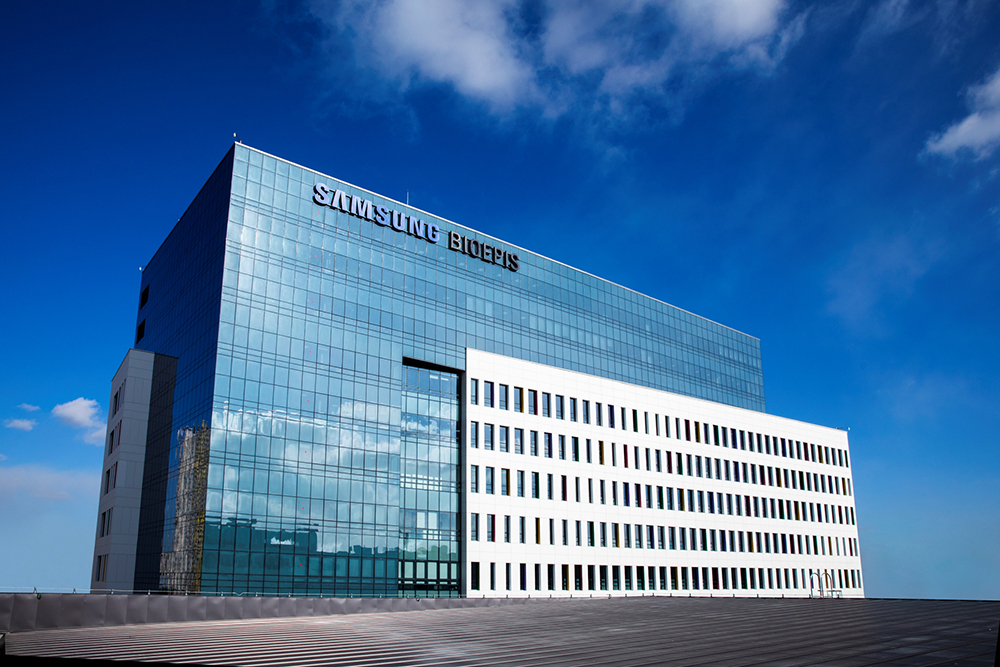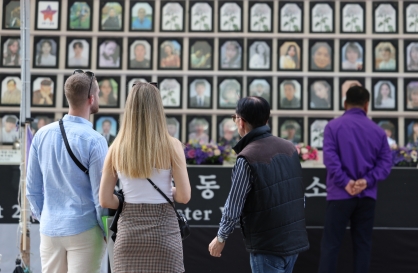Samsung Bioepis considering takeover of Biogen's unit: reports
Samsung's biopharma unit unveils interchangeability study results of Humira biosimilar
By Shim Woo-hyunPublished : Aug. 2, 2023 - 15:42

Samsung Bioepis is considering acquiring a biosimilar business unit of Biogen for around 1 trillion won ($775.3 million) to improve its presence in the US market, according to local reports on Wednesday.
The acquisition will see Samsung Bioepis secure a direct sales network in the US, which could help it boost sales in the world's largest drug market.
The reports on Samsung Bioepis’ potential acquisition came as Biogen is in the process of restructuring to cut costs, after the company’s first Alzheimer's drug Aduhelm failed its first offering.
Biogen is a Massachusetts-based biotech firm partnered with Samsung Bioepis. In 2012, Biogen initially invested in a 15 percent stake in Samsung Bioepis when it was established as a joint venture in 2012. Later in 2018, Biogen increased its stake in the joint venture to near 50 percent, until Samsung Bioepis repurchased all shares owned by Biogen.
Although Biogen no longer holds shares in Samsung Bioepis, Biogen has remained a partner responsible for sales of Samsung Bioepis’ biosimilar products, including Benepali, Imraldi and Flixabi and Byooviz.
The biosimilar business unit, which Samsung Bioepis is reportedly seeking to buy, posted around 960 billion won in sales, according to local reports.
The company's potential takeover of Biogen appears to be aimed at improving its profitability. Samsung Bioepis launched seven biosimilars in the global market, and sold its products through marketing partners -- Biogen for the European market and Organon for the US market -- sharing half of the profits with these companies.
Samsung Bioepis has declined to comment.
"In regard to media reports on Biogen's potential divestiture of its biosimilar unit, we are not in a position to comment on the matter," the company said.
Meanwhile, Samsung Bioepis and its US partner Organon said Wednesday that its recent studies with Humira biosimilar Hadlima, or SB5, has shown that the biosimilar can be interchangeable with the AbbVie's reference drug.
The company is expected to seek an interchangeability designation from the US Food and Drug Administration (FDA) soon, which is expected to help the company increase Hadlima's share in the highly competitive US adalimumab market.
"(Samsung Bioepis) will apply for the FDA designation in the third quarter this year. If and when the FDA will grant the designation, however, is uncertain," an official from Samsung Bioepis said.
Based on the latest results from the clinical interchangeability studies, Samsung Bioepis will seek an FDA interchangeability designation, which allows the substitution by a pharmacist of a biosimilar for its reference originator biologic without consulting the original prescriber.
Samsung Bioepis started to conduct clinical interchangeability studies between August 2022 and May 2023 to prove Hadlima’s safety and efficacy compared with the reference drug Humira.
The interchangeability studies involved 371 patients with moderate to severe chronic plaque psoriasis. The clinical studies for SB5 were conducted across 33 sites in four countries, including Bulgaria, Lithuania, Poland and the Czech Republic.
The studies were designed to see the pharmacokinetic similarity between two treatment groups: a group of patients with moderate to severe plaque psoriasis who switched multiple times between Humira and another group of patients receiving Humira only.
Samsung Bioepis said the studies achieved all primary endpoints at weeks 23 to 25. Efficacy profiles, safety profiles, and immunogenicity were also comparable between the two treatment groups, it added.
In the US, Samsung Bioepis’ Humira biosimilar was approved by the FDA in July 2019 for a low-concentration formulation and subsequent approval for the high-concentration formulation in August 2022. The company launched the biosimilar in the US market in early July.





![[Music in drama] Rekindle a love that slipped through your fingers](http://res.heraldm.com/phpwas/restmb_idxmake.php?idx=644&simg=/content/image/2024/05/01/20240501050484_0.jpg&u=20240501151646)


![[New faces of Assembly] Architect behind ‘audacious initiative’ believes in denuclearized North Korea](http://res.heraldm.com/phpwas/restmb_idxmake.php?idx=644&simg=/content/image/2024/05/01/20240501050627_0.jpg&u=20240502093000)










